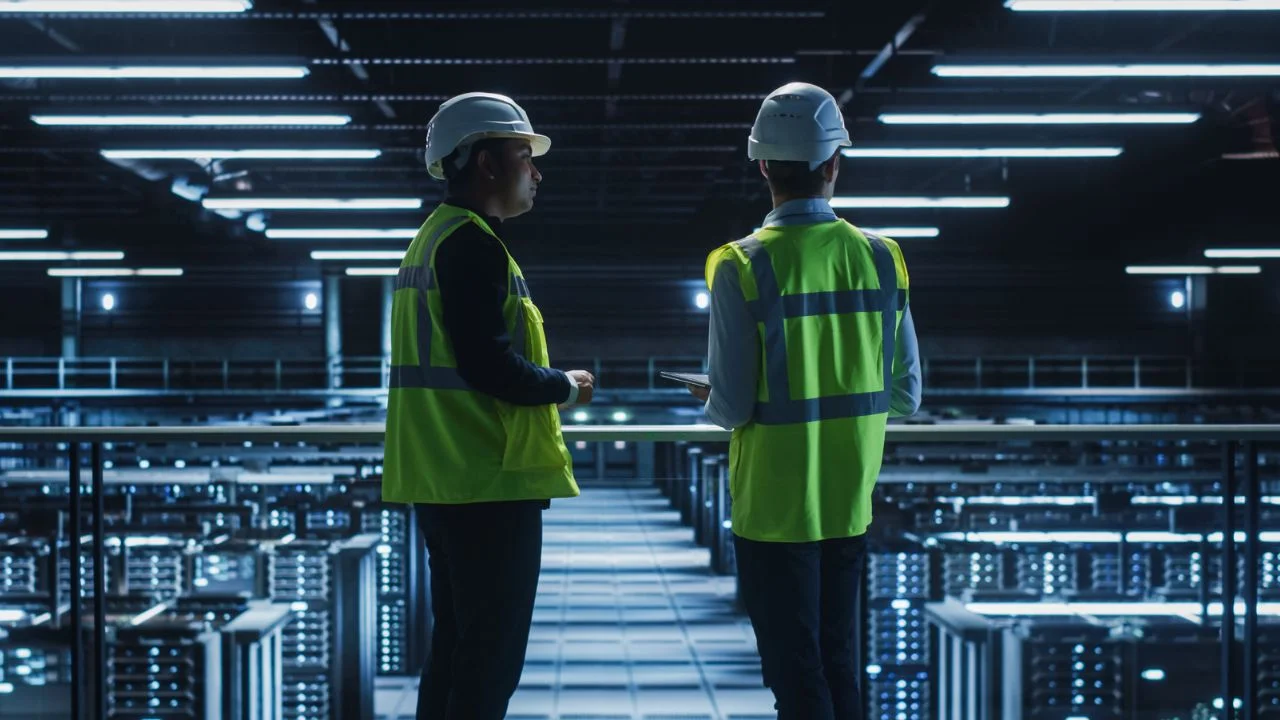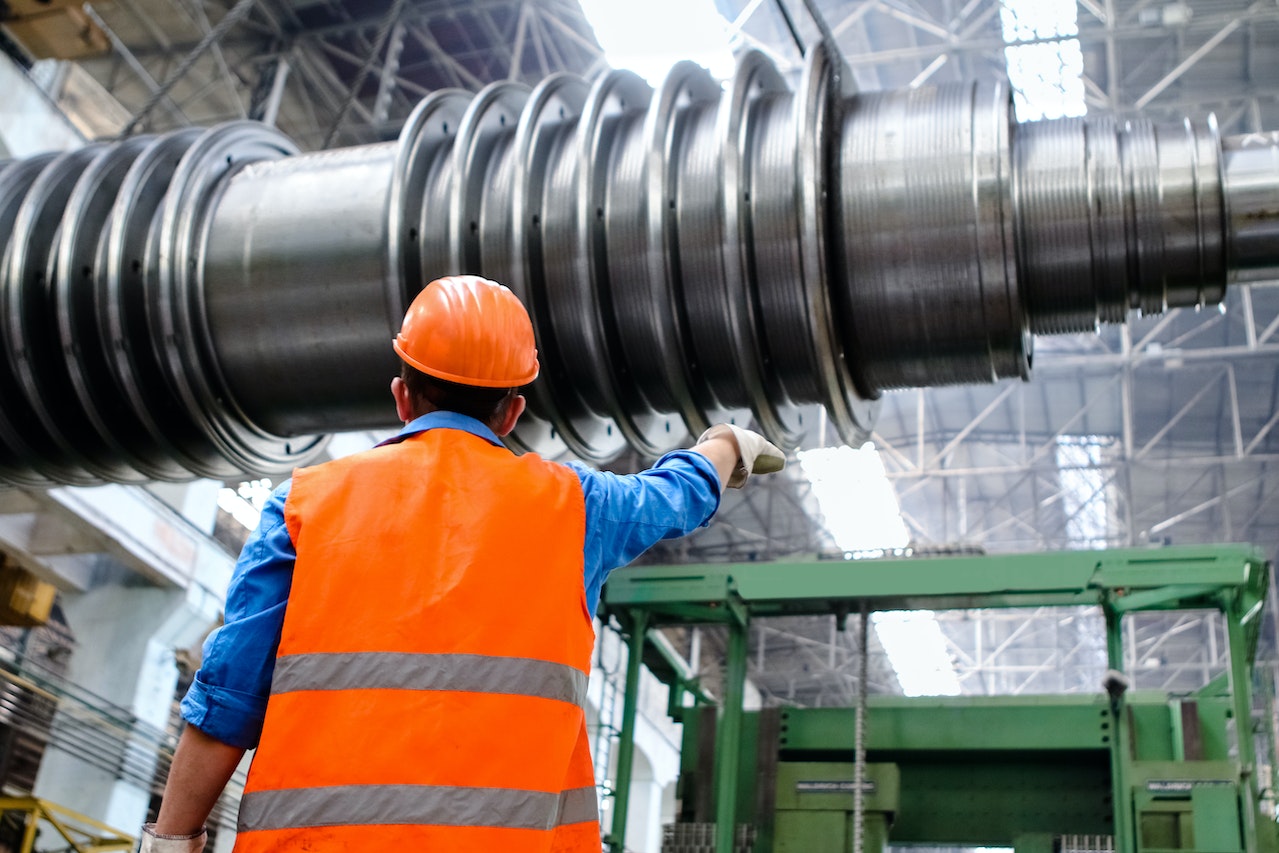
5 carbon capture jobs taking over the renewable energy industry
17 Oct, 20238 minThe renewable energy industry has witnessed a profound transformation in the ongoing quest f...

The renewable energy industry has witnessed a profound transformation in the ongoing quest for sustainable energy solutions and the urgent need to combat climate change. Among the myriad of advancements, one facet has gained prominence - the field of carbon capture, opening a whole host of opportunities in the form of carbon capture jobs.
As we navigate the complexities of a carbon-conscious world, carbon capture technologies are emerging as a beacon of hope, offering a tangible means to reduce greenhouse gas emissions and promote environmental responsibility.
At the heart of this transformative movement are five distinctive carbon capture and storage jobs that have emerged within the renewable energy sector. These roles, each with their own responsibilities and expertise, collectively represent extensive innovation in the fight against climate change.
In this guide, we'll delve into these carbon capture storage jobs, detailing what each role involves and outlining the responsibilities, skills and qualifications required to succeed.
We’ll explore the following carbon capture jobs:
- LCA specialist (lifecycle analysis)
- Project manager
- Principal process engineer
- Research and development engineer
- Transport and storage specialist
1. LCA specialist (lifecycle analysis)
The first entry on our list of the 5 carbon capture jobs taking over the renewable energy industry is an LCA specialist (lifecycle analysis). LCA specialists in the carbon capture market are responsible for conducting lifecycle assessments to analyse and determine carbon capture and storage technologies' environmental impacts and economic feasibility throughout their complete lifecycle.
An LCA specialist plays a highly valuable role in enhancing a business's carbon footprint model to unlock the environmental impact of a product or service. They will highlight pollution and environmental factors by gathering data from the extraction of raw materials through to carbon transportation and storage. With this information, they will help develop eco-design-driven solutions to improve an organisation's environmental performance.
When conducting lifecycle assessments, an LCA specialist will also utilise software to assess the direct and indirect energy consumption, water use and greenhouse gas emissions of the carbon capture and storage technology to calculate the environmental impact.
Working under the necessary regulations, they will share their findings and recommendations with various stakeholders, including project managers, engineers, and policymakers, to deliver solutions to reduce the environmental impact of carbon capture projects.
Responsibilities of an LCA specialist
LCA specialist carbon capture and storage jobs require individuals to carry out the following responsibilities:
- Calculate, assess and evaluate the environmental impacts of products and services by conducting life cycle assessments
- Collate and manage LCA databases focused on the inputs and outputs of a product or service, including the energy, water, and materials used, as well as the emissions produced
- Identify ways to enhance the environmental performance of a product or service
- Communicate the results of LCAs to stakeholders, such as engineers, scientists, policymakers, and even the public - tailoring the delivery of information to specific technical and non-technical audiences
- Stay updated with and conduct thorough research on the latest LCA methodologies, applications and voluntary and regulatory carbon market schemes
Skills and qualifications of an LCA specialist
Here are some of the skills and qualifications required to become an LCA specialist:
- Proven experience and expertise in working with the LCA industry-standard databases, tools and methodologies
- Ability to project manage and collaborate with other departments
- Strong communication skills with an ability to translate complex information to various audiences
- Excellent problem-solving and analytical skills with great attention to detail
- A bachelor's or master’s degree in sustainability, environmental science, engineering, or a related field
2. Project manager
Talent capable of being placed in project manager carbon capture jobs is widely sought after by companies within the renewable energy market. These organisations need professionals to oversee the completion of carbon capture and storage projects from start to finish.
Project managers within the carbon capture industry are responsible for managing every aspect of a carbon capture and storage project, from its inception to completion, with the ultimate aim of coordinating each project element to meet the employer's objectives. These objectives often focus on developing technologies to reduce carbon emissions from the industrial processes used to create a product or service.
Throughout the project duration, the project manager will mitigate any risks associated with the project, ensure the budget is managed without overspending, liaise with suppliers and delegate tasks to various contractors, such as engineers and scientists, whilst also tracking the project's progress to ensure it remains on course to meet the necessary deadlines.
Additionally, project managers work across many global carbon capture and storage projects. They are expected to have a solid understanding of carbon capture and the industry-standard methodologies used to complete projects within this space. Experienced project managers will also conduct feasibility studies to determine the viability of a carbon capture project and recommend budgets and timeframes to businesses and investors that are funding the project.
Responsibilities of a carbon capture project manager
Project manager carbon capture and storage jobs require talent to be accountable for the following responsibilities:
- Manage every aspect of the project from beginning to end
- Plan, develop and implement the schedule of the project
- Oversee the project budget and timescales, ensuring the project is completed on time and within budget
- Delegate task to the contractors working on the project, from carbon capture engineers and scientists
- Report on the progress of the project to the relevant stakeholders
Skills and qualifications of a carbon capture project manager
Below are the skills and qualifications employers typically look for in a carbon capture project manager:
- Strong technical knowledge of carbon capture
- Ability to oversee multiple projects simultaneously whilst being able to work under pressure to meet deadlines
- Excellent communication and interpersonal skills
- Ability to liaise and build long-term relationships with contractors and suppliers
- A bachelor's or master's degree in environmental science, engineering, sustainability, or a related field
3. Principal process engineer
The role of a principal process engineer is next on our list of carbon capture engineering jobs. Talent within this niche is responsible for helping global renewable energy companies reduce carbon emissions and play a significant role in the pre-feasibility, feasibility, front-end, engineering, design (FEED) and engineering, procurement, and construction (EPC) stages of a carbon capture and storage project.
Principal process engineers are senior-level professionals with deep chemical and mechanical engineering expertise to support the whole carbon capture and storage lifecycle, from design, development and implementation. Here, they will conduct FEED studies while supporting the construction, testing, commissioning and maintenance of various carbon capture facilities.
Operating across a broad range of global projects and working in collaboration with other engineers and scientists, principal process engineers will also optimise the processes of existing carbon capture facilities to further reduce the use of carbon emissions.
Additionally, a principal process engineer will lead the implementation of piping and instrumentation diagrams (P&IDs), process flow diagrams (PFDs), heat and mass balances (HMBs) and other engineering deliverables. They will also oversee the procurement and installation of various equipment and provide technical support to plant operators, ensuring compliance with all relevant regulations throughout the project.
Responsibilities of a principal process engineer
Here are the typical responsibilities of principal process carbon capture engineering jobs:
- Conduct pre-FEED and FEED studies for the design stages of carbon capture projects, as well as support the EPC stage
- Use industry-standard software to perform process simulations and economic analyses on a carbon capture plant
- Oversee a team of process engineers to implement various project deliverables such as P&IDs, PFDs and HMBs
- Provide technical support to carbon capture facility operators
- Remain up-to-date on the latest process engineering technologies and recommend
Skills and qualifications of a principal process engineer
Principal process carbon capture engineering jobs require talent to have the following skills and qualifications:
- Ability to problem solve with a keen eye for detail
- Excellent leadership skills with an ability to manage a team of engineers
- Experience with specific software, such as Aspen Hysys or ProSim, to conduct process simulations
- A bachelor's or master’s degree in chemical engineering or a related field
- Talent with transferable skills can be considered for the role if they have proven experience in industries such as chemicals, manufacturing and oil and gas
4. Research and development engineer
A research and development engineer is responsible for exploring the latest technologies and methodologies surrounding the sustainable capturing, storing and utilisation of carbon dioxide emissions from the atmosphere and various industrial plants and manufacturing facilities.
Research and development engineers working in the renewable energy space often work on projects involving designing and testing new carbon capture materials and systems, developing unique methods of transporting and storing CO2, optimising the efficiencies of carbon capture technologies, and looking into the environmental impacts of carbon capture.
They might also investigate processes to repurpose captured carbon to produce alternative energy, reducing the global reliance on fossil fuels. When doing so, carbon capture engineers will perform simulations and analyses to determine the efficiencies of the renewable energy solutions they're developing and the processes used to create them while reporting and documenting their findings.
Additionally, a research and development engineer will oversee the carbon capture processes and systems and troubleshoot any issues. They will also collaborate with other engineers to identify ways of enhancing existing carbon capture technologies, providing recommendations to stakeholders for future projects.
Responsibilities of a research and development engineer
Here are the main responsibilities associated with research and development carbon capture engineering jobs:
- Conduct research to discover new carbon capture products and processes
- Design and develop new technologies, systems and processes
- Test, evaluate and troubleshoot carbon capture technologies
- Analyse data and report on the results to optimise existing processes
- Collaborating with other carbon capture engineers, scientists, and technicians
Skills and qualifications of a research and development engineer
Carbon capture research and development engineers typically come equipped with the following skills and qualifications:
- Proven expertise in a broad range of carbon capture technologies
- A deep expertise in the various principles and practices of engineering
- Excellent problem-solving and analytical skills
- A bachelor's or master's degree in chemical engineering, mechanical engineering or a related engineering field
- Experience in an alternative energy field, such as oil and gas
5. Transport and storage specialist
Our fifth and final entry to the list of carbon capture jobs taking over the renewable energy industry is transport and storage specialist. Transport and storage specialists are involved in the complete capture, transport and storage lifecycle of carbon capture.
Transport and storage specialists are first responsible for developing and implementing effective technologies, such as a flue or direct air capture, that can capture harmful carbon emissions from the atmosphere and industrial facilities.
A carbon capture transport and storage specialist will then be involved in the transporting phase, where they use ships, pipelines and tanks to move the carbon to the desired location. The carbon that has been captured will be transported in either a liquid, gas or solid state.
The final primary responsibility of a carbon capture transport and storage specialist is to store the CO2 securely underground to reduce the impact it would otherwise have on the planet. This is done by a technique known as geo-sequestration, which involves injecting the carbon into deep geological formations using technologies commonly used by the oil and gas industry.
Responsibilities of a transport and storage specialist
Transport and storage specialist carbon capture jobs require talent to carry out the following responsibilities:
- Design, plan, and manage carbon capture transportation and storage projects
- Conduct technical assessments of transport and storage technologies and systems
- Develop and implement safety and environmental regulations for transport and storage projects
- Liaise with government agencies and other stakeholders to promote the development of transportation and storage
- Conduct research and development on new transport and storage technologies
Skills and qualifications of a transport and storage specialist
Here are some of the skills and qualifications typically associated with transport and storage specialist jobs:
- Strong understanding of carbon capture and related fields such as engineering, geology, environmental science
- Solid problem-solving and analytical skills
- Excellent teamwork and communication skills, with the ability to also work independently
- A certification such as the Certified Carbon Capture Professional (CCCP) certification
- A bachelor’s or master’s degree in engineering, geology, environmental science, or a related field
Final Thoughts
The growing emergence of carbon capture jobs within the renewable energy industry represents a pivotal shift towards mitigating climate change and promoting sustainable practices. These 5 roles we've explored - LCA specialists, project managers, principal process engineers, research and development engineers, and transport and storage specialists - each contribute uniquely to this vital mission.
As these roles continue to evolve and expand, they are becoming increasingly vital to the world's efforts to positively impact climate change and transition towards a more sustainable energy landscape. The professionals in these positions are at the forefront of a green revolution, driving the renewable energy industry towards a cleaner, greener future, helping businesses and the planet achieve net zero and the climate objectives highlighted in the Paris Agreement.
Their dedication and expertise are instrumental in paving the way for a world with reduced carbon emissions and a more sustainable future for all. Of course, these are not the only roles impacting the renewable industry. Discover more top positions in this space by reading our guide on the top 5 most searched alternative and renewable energy jobs.
Looking for the latest carbon capture jobs in renewable energy?
If you want to grow your career with the latest carbon capture jobs, we can help you find the role you’ve been looking for. We’re experts in the carbon capture and storage industry, with the ability to connect you with some of the world’s most prominent organisations at the forefront of the carbon capture space.
So, if you're looking for a partner to help you reach your carbon capture career goals, contact NES Fircroft today.








